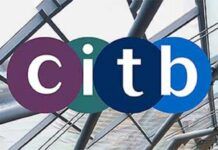This week (May 4, 2020), HM Revenue and Customs (HMRC) will begin contacting customers who may be eligible for the government’s Self-Employment Income Support Scheme (SEISS).
Those who are eligible will be able to claim a taxable grant worth 80% of their average trading profits up to a maximum of £7,500 (equivalent to three months’ profits), paid in a single instalment.
HMRC is also inviting self-employed people to go online and check their eligibility for SEISS.
To get confirmation from the eligibility checker, individuals will need:
- Unique Taxpayer Reference (UTR)
- National Insurance Number
- Up to date details on your Government Gateway account.
Once the online check is complete, eligible taxpayers will be given a date to submit their claim. They will also be encouraged to update their contact details.
The claims service will open on Wednesday May 13 (ahead of the original timetable). The government says this will help millions of self-employed people whose livelihoods have been affected by the coronavirus.
The claims process will be very simple, and those eligible will have the money paid into their bank account by May 25, or within six working days of completing a claim.
Who is eligible?
Individuals are eligible if their business has been adversely affected by coronavirus, they traded in the tax year 2019 to 2020, intend to continue trading, and they:
- Earn at least half of their income through self-employment
- Have trading profits of no more than £50,000 per year
- Traded in the tax year 2018 to 2019 and submitted their Self Assessment tax return on or before April 23, 2020 for that year.
HMRC is using information that has been provided in the 2018 to 2019 tax return – and returns for 2016 to 2017 and 2017 to 2018 where needed – to determine people’s eligibility and is contacting those who may be eligible via email, text message or letter.
Wider government support
This scheme brings parity with the Coronavirus Job Retention Scheme, where the government committed to pay up to £2,500 each month in wages of employed workers who are furloughed during the outbreak.
Where individuals are ineligible for the scheme, HMRC will direct people to guidance, setting out the scheme conditions to help them understand why they are ineligible, and advise on other support available to them such as:
- Income tax deferrals
- Rental support
- Universal Credit
- Access to mortgage holidays
- Various business support schemes.




